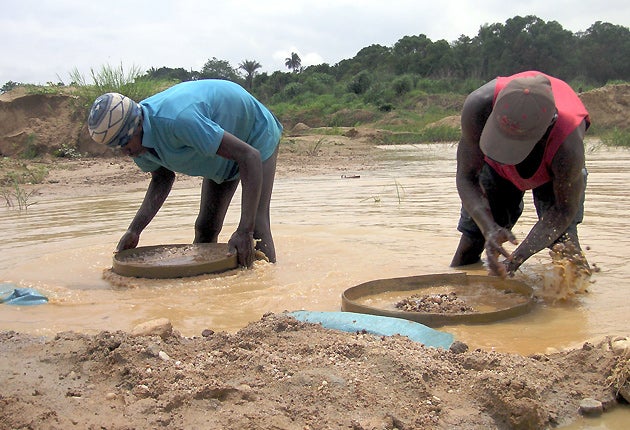UK army head still fighting for the victims in Sierra Leone

The civil war in Sierra Leone became a byword for savagery. Marauding militias, often using child soldiers, killed and raped across the land. The country’s natural riches turned to a curse, with predators, both domestic and foreign, engaged in a fierce struggle to control mines producing the highly lucrative “blood diamonds”.
Ten years on, peace has broken out in the West African state. There is relative political stability, a programme - broadly successful - to reintegrate the armed groups and a number of ongoing reconstruction projects. Sierra Leone, backed by the billionaire financier and philanthropist George Soros, now presents itself as one of the region's successful investment opportunities.
However, for many in Sierra Leone the long years of strife and poverty have left a legacy of hardship. Particularly vulnerable are those who are physically handicapped, either through deliberate mutilations or disease. They are the ones, says General Sir David Richards, who will especially need help and must not be forgotten.
Richards, now the head of the British Army, led the UK military mission to Sierra Leone in the late 90s which was credited with helping to end the internecine war. He has remained involved in promoting welfare in that country and will take part tomorrow evening at a seminar ‘Sierra Leone: Past, Present, Future’ at the Royal Geographical Society in London.
Gen Richards said “It is really important that we continue to build on our original success and do not risk the future of a people who continue to deserve, as much if not more in my view than any in the world, our strong support.
“The event will bring together a somewhat eclectic group - soldiers, journalists, Sierra Leonians from a variety of fields - who made common and determined cause to save a people when the rest of the world was about to dump on them. What has been achieved in Sierra Leone, especially by the efforts of its own people, is a fascinating and uplifting tale and has, I think, many lessons for today and other places.”
Such was the extent of Sir David’s involvement in all aspects of public life in Sierra Leone that he became known there by the Media as the ‘Shogun’. He campaigned actively to raise £20 million in international funding and the commander’s advice was valued by the country's President Ahmed Tejan Kabah. But some in the Foreign Office in London were weary of him "shooting from the hip" as they put it, or "telling some unpalatable truths", as he said.
Richards came out of Africa undamaged by the political and diplomatic machinations to become the head of Nato forces in Afghanistan, the first non-American to command US troops since the Second World War, where he applied some of the lessons learned in Sierra Leone such as winning over rebel fighters. In turn they now form part of the blueprint presented by General Stanley McChrystal, the commander in Afghanistan, to conduct the ‘surge’ taking place with Barak Obama’s announcement of 30,000 extra troops.
Funds raised from the event tomorrow evening will go to the Paul School for the Blind at the town of Bo where around 65 children live in squalid conditions. Many lost their eyesight to sadistic acts by rebel fighters, some have found their way to the school after being abandoned by their families.
General Richards’ daughter, Joanna, has worked at the Paul Centre and its sister organisation the Milton Margai School for the Blind. His wife Caroline is involved in running the Afghan Appeal Fund which has raised several hundred thousand pounds in aid for children in Afghanistan.
A spokesman for the UK support group for the project said that at the Paul School “the boys' dorm has 19 beds for 42 boys whilst the girls dorm has seven beds between 23. The lavatories are completely repellent and infested with insects and the pupils wash from buckets in their dorms... The school is more than just a place of learning. Disabled people in Sierra Leone, and the blind especially, are considered worthless to society. A large proportion of blind children are abandoned, and it is only thanks to schools such as the Paul School that these children have an education, or even a roof over their heads and a daily meal. The children are overwhelmed that this event is in aid of them.”
Subscribe to Independent Premium to bookmark this article
Want to bookmark your favourite articles and stories to read or reference later? Start your Independent Premium subscription today.

Join our commenting forum
Join thought-provoking conversations, follow other Independent readers and see their replies